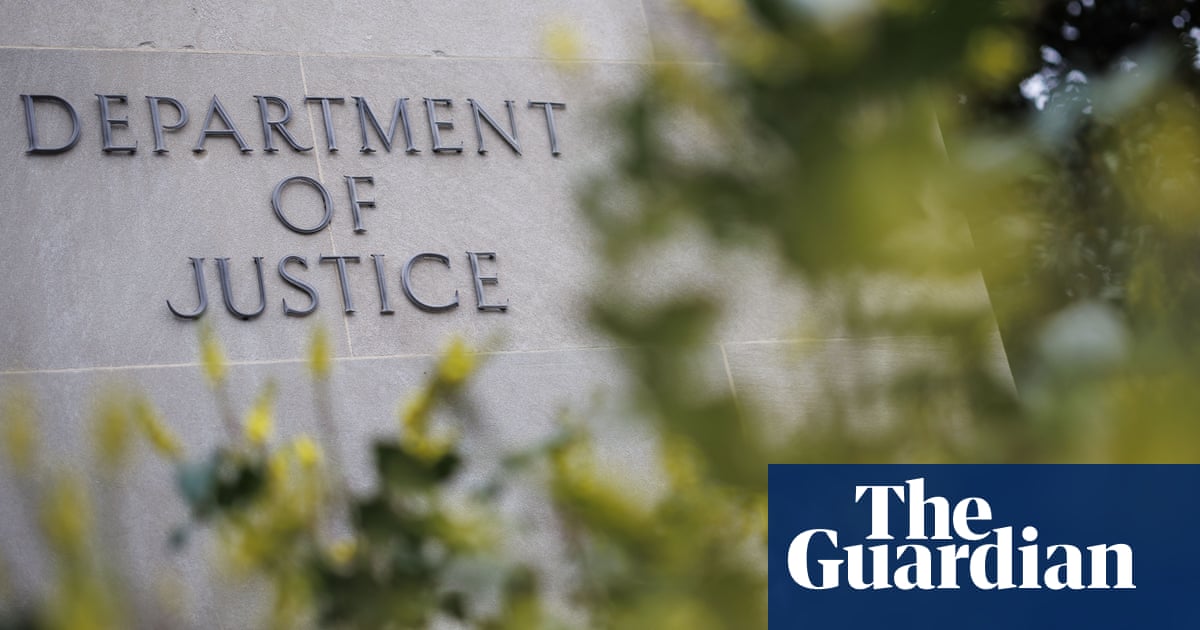The US justice department said on Thursday that it had filed a lawsuit againstNew Yorkstate, challenging state policies that blocked immigration officials from arresting individuals at or near New York courthouses.
“Specifically, the complaint challenges a law, called the Protect Our Courts Act, that purposefully shields dangerous aliens from being lawfully detained at or on their way to or from a courthouse and imposes criminal liability for violations of the shield,” the justice department said in a statement.
The US attorney general,Pam Bondi, said New York was employing policies similar to those used by California to protect “illegal aliens from apprehension”.
“This latest lawsuit in a series of sanctuary city litigation underscores the Department of Justice’s commitment to keeping Americans safe and aggressively enforcing the law,” she said.
Demonstrators once again took to the streets in major US cities on Thursday to protest against Donald Trump’s immigration crackdown.
A federal judge in San Francisco willhear argumentslater in the day as part of California’s lawsuit against Trump’s deployment of US troops in Los Angeles.
Meanwhile, Republicans in Congress called other Democratic governors to the US Capitol on Thursday to question them over policies limiting cooperation with federal immigration authorities.
Members of the House committee on oversight and government reform sat in front of large, full-color posters showing men who they said were in the country illegally when they were arrested for crimes in Illinois, Minnesota and New York – home of the governors testifying before the committee.The committee chairman, James Comer, began the hearing by introducing the family of a young woman killed in a hit-and-run traffic crash in Illinois, suggesting its sanctuary policies had facilitated the illegal presence of the driver of the other vehicle.
“Sanctuary policies do not protect Americans, they protect criminal illegal aliens,” Comer said.
There is no legal definition of a sanctuary jurisdiction, but the term generally refers to local or state governments with policies limiting cooperation with federal immigration authorities. Courts previously have upheld the legality of such laws.
But Trump’s administration has sued Colorado, Illinois, New York and several cities, including Chicago and Rochester, New York, asserting their policies violate the US constitution or federal law.
Illinois, Minnesota and New York also were among 14 states and hundreds of cities and counties recently listed by the Department of Homeland Security as “sanctuary jurisdictions defying federal immigration law”. The list later was removed from the department’s website after criticism that it erroneously included some local governments that support Trump’s immigration policies.
Tim Walz, the Minnesota governor and Kamala Harris’s running mate in the 2024 presidential election, was the first to testify on Thursday. He rejected the assertion that Minnesota is a sanctuary state. It has no statewide law protecting immigrants in the US illegally from deportation, though Minneapolis and St Paul both restrict the extent to which police and city employees can cooperate with immigration enforcement.
“Enforcing immigration law is not the role of local and state governments,” said Walz.
Heavily Democratic Chicago has been a sanctuary city for decades. In 2017, the then Illinois governor, Bruce Rauner, a Republican, signed legislation creating statewide protections for immigrants.
Governor JB Pritzker, who succeeded Rauner in 2019, said that violent criminals “have no place on our streets, and if they are undocumented, I want them out of Illinois and out of our country”.
The New York governor, Kathy Hochul, said law enforcement officers still can cooperate with federal immigration authorities when people are convicted of or under investigation for crimes.
“What we don’t do is civil immigration enforcement – that’s the federal government’s job,” Hochul said.
